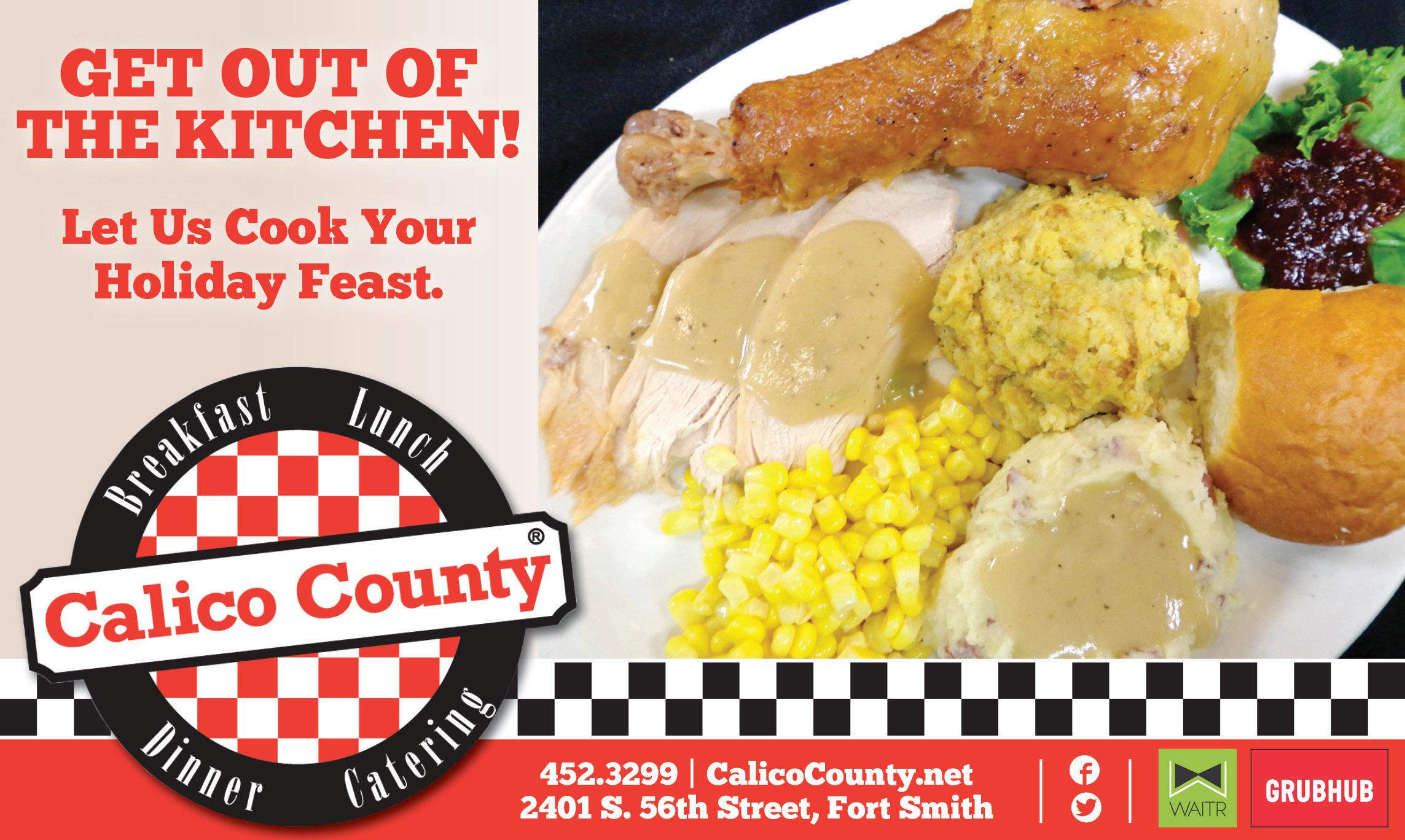
7 minute read
Take and Eat
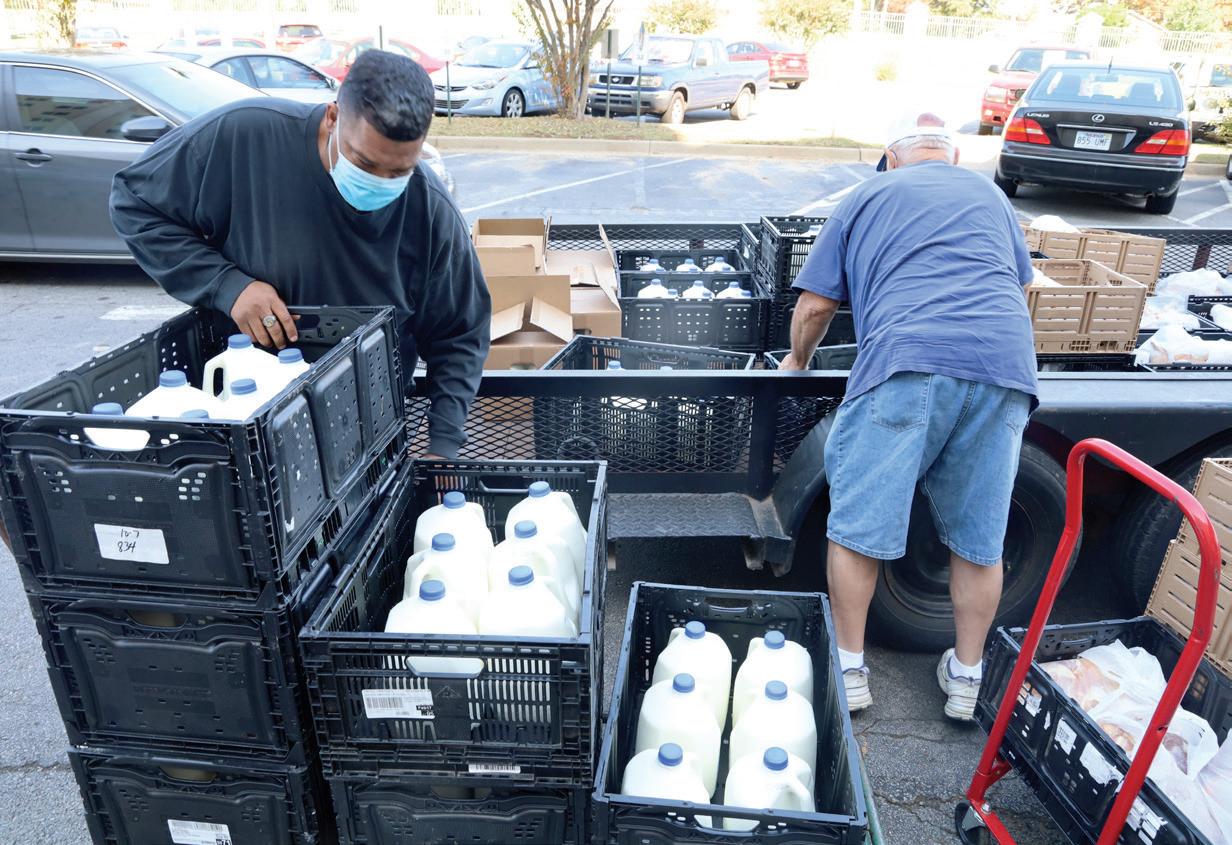
Charolette and volunteers
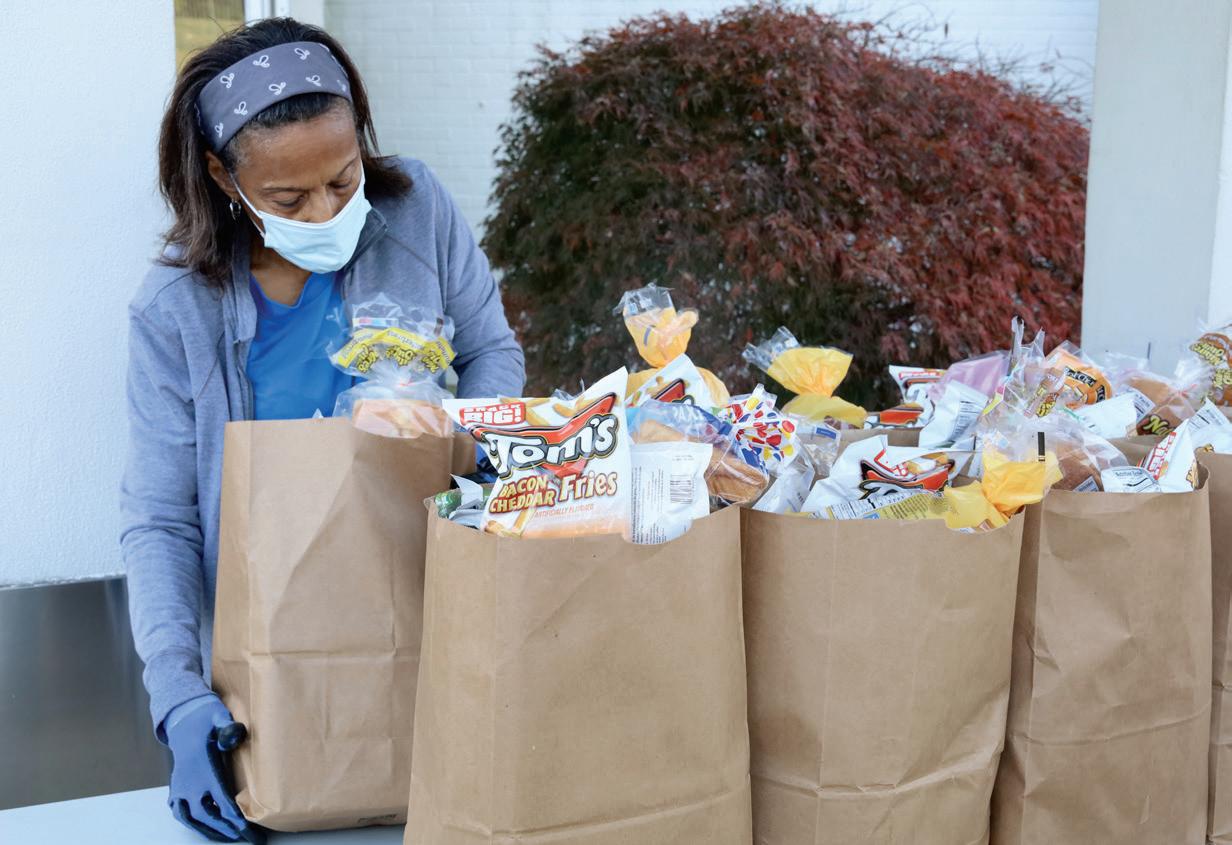
Take and Eat ANTIOCH YOUTH AND FAMILY
Words and images Dwain Hebda
On a brilliant clear day, two trailers arrived at Fort Smith’s Gorman Towers, swollen with food. Volunteers moved swiftly to unload the plunder – apportioned bags of meat, cheese, gallons of milk. In twenty minutes, the bounty has been moved onto handcarts and trucked inside while bags of non-perishables have been set up on tables out front for retrieval by the one hundred fifty low-income elderly who live here.
“I’m from Fort Smith, Arkansas, born and raised,” says Ray Thomas, a thirty-something volunteer whose life story is inked into his skin. “Fort Smith, Arkansas, is my community so I want to be part of doing something for my community. As a kid growing up here, I was a gang banger, got into a lot of trouble. Now I’m giving back to my community and trying to make a difference.”
Fellow volunteer Bobby Whiteaker is old enough to be Ray’s grandfather. He regularly makes the trip in from Oklahoma to drive the delivery truck and unload food for people who need it. “I’ve been traveling over here the last two and a half months and working three days a week just to help,” he says. “I feel like I’m giving back.”
Off to one side of the activity sits a slight senior woman. Her age blends her in with the people who live here, but Charolette Tidwell’s tone tells you immediately who’s calling the shots. It’s been that way ever since she founded Antioch Youth &
Family, the nonprofit that’s brought this haul today. Her tone isn’t harsh, but when she talks, Fort Smith listens.
“My upbringing was in poverty, but I never knew hunger,” she says. “There were eleven kids in the house, and we grew up very poor but never hungry and really never knowing that we were poor. We never had that concept planted in our heads.
“There was an acre garden beside the house. My mother was very frugal in that she knew how to can food, preserve food. My dad was a chef, so we always had someone in the house that was just phenomenal with cooking. My mother and father were never on food stamps, either. That was an interesting part.
“But the number one thing was, we had a community then that took care of each other. If someone’s got two blocks of cheese, they would share it. Sharing was the biggest part of the community that I grew up in.”
Charolette Tidwell is a living example of what happens when you dictate your circumstances instead of letting them define you. Inspired by the hard-working example of her parents, Leodell Jones and Nathaniel Jack Jones, she rose from dead center of those eleven kids to earn degrees in nursing and education, plus a master’s to boot, en route to a career in nursing by which she blazed new trails for women of color in nursing and nursing administration.
“I always wanted to be a nurse,” she says. “My mother was very nursing-driven, except she didn’t have the education in nursing. So, when I was small, if she was going to a neighbor’s house with a pot of soup because they were sick or they were hungry, I’d cry to go with her. I always knew that nursing was going to be my profession.”
It’s a long way from the poor side of town to arguably the most-recognized woman in the city, sixty years covering multiple careers, in fact. The first, forty years in nursing, was supplanted in 1999 by the formation of Antioch, which she launched to help ease hunger and empower the disenfranchised in her hometown.
“The situation on the ground is horrible in terms of my community, which is poor,” she says. “I know poverty firsthand, but I also know a sharing community that saw each other responding to the need. So that is a goal that we have: I want to knit that family unit together at a meal table, an environment that I was raised in, an environment that I know works. And I want that food to be healthy.
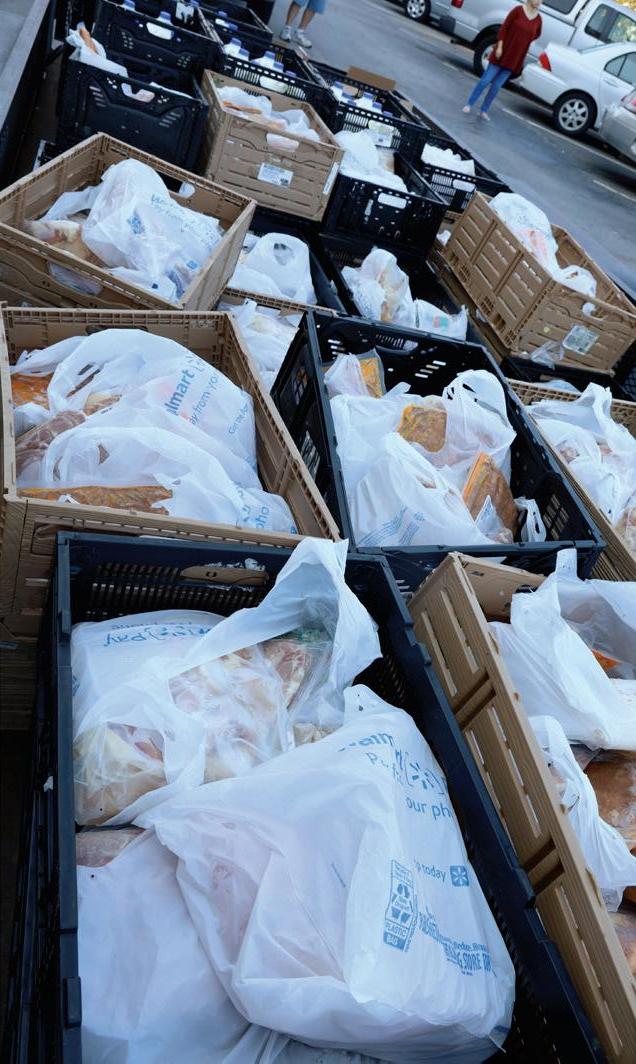
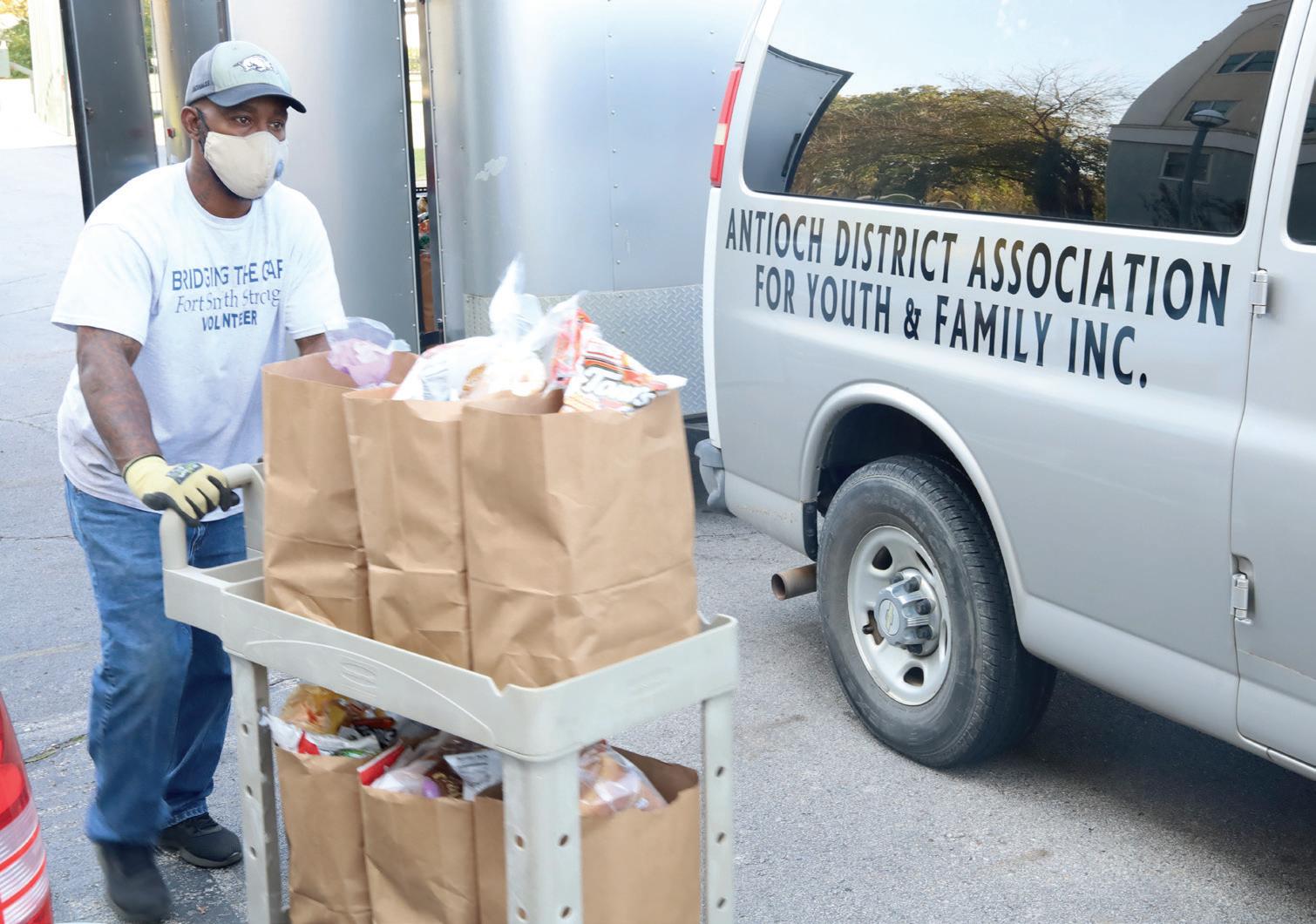
“When I talked to the CEO that came to Fort Smith from Feeding America, my statement to her was, ‘We can fix this problem community by community. We can look at what we’re presently doing, and we need to look at how we are presently allocating the resources.’”
And as for why she chose to kick-start a second career instead of enjoying a normal retirement—on her own dime, no less—she just shrugs.
“It’s my upbringing again,” she says. “I have never been able to sit down at the house. I was always antsy going on vacations for a week with the children and my husband. So, it’s just my level of energy. I’m not a sitter. I’m healthier mentally if I’m up and busy.”
Any way you slice it, Charolette’s dream has been a roaring success. Not only has Antioch grown to reach eighteen thousand hungry people per month, she’s also recently landed new, larger digs to house the nonprofit, complete with a nutrition center, food pantry and garden. She sees the 10,000-square-foot building as more than just a stop-gap measure, however.
“As the saying goes, I want to teach people to fish not just give them a fish,” she says. “[The building] has a nutrition center in it and we’ll be able to have our public-school kids be in that building with dietitians, with education.
“We also have a three-acre community garden that we have added to our repertoire of what we do. Children, prior to the pandemic, were escorted to the garden. They learned to plant the food, they learned to help harvest the food and then they learned to take it home and cook it.”
As she speaks, a woman approaches her, asks if she can pray over her. Charolette gladly and immediately accepts. Therein lies another of her secret weapons, the power of prayer and the grace of the Almighty that has found its way into every chapter of her life, transcending the obstacles of age and race and socioeconomic status.
“[Charolette] has always helped my mom and I thought it was my responsibility to help her as much as I can because of that,” said David Bell who’s volunteered with Antioch on and off for a decade. “She is such a nice person and she’s always helped me, too. I’ve been knowing her for fifty years, she’s lived across the street from me, around the corner from my mom for years and years and years. We’ve always been friends; I think we’re kinfolk. God bless her. She’s such a lovely lady.”
With her work has come recognition. Charolette holds the key to the city, multiple community service awards, been featured on NBC network news and her smile even appears on bags of Lay’s potato chips. But nice as all that is, none of it is as powerful as the one-on-one connections she witnessed as a child, fueled her ambitions and are, she believes, the key to lasting change.
“This is what I know,” Charolette says. “A community can be knitted together again. That’s the first thing. We have run this organization twenty-one years with an all-volunteer team. When we are at thirty-thousand individuals a month needing food, I see a revolution that can be supported in that area. Our major goal is to knit the community, the community that grew me, the community that impacted me and the community that I know will work.”
The very thought of reaching such a Promised Land casts over her face a brilliant smile and a loud, well-worn laugh.
“It’s my faith! While I’m here I might as well do something,” she says. “If I’ve got to stay here and look at something that makes me sad, then I need to help do something about it. I’m a believer that all things are possible, all things.”
Antioch for Youth & Family 1122 N 11th Street, Fort Smith, Arkansas 479.459.0669 | antiochyouthfamily.org

